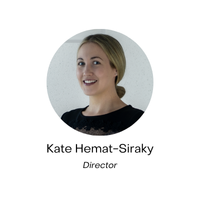As an employer, it’s important to understand the key differences between Australian permanent residency and citizenship, particularly when it comes to employee travel rights and visa obligations.
Resident Return Visas (RRVs)
Permanent residency allows individuals to live and work in Australia indefinitely, but the travel facility tied to their visa is only valid for 5 years. After this period, if they have not been approved for citizenship yet, then to travel internationally, they will require a Resident Return Visa (RRV) to lawfully re-enter Australia as a permanent resident.
Employees intending to apply for permanent residence should seek advice about any tax implications for them.
What Employers Should Know:
- Employees with permanent residency do not require ongoing sponsorship and have full work rights.
- However, if they plan to travel overseas after the 5-year visa period, they must hold a valid RRV to re-enter Australia.
- RRVs do not impact employment eligibility, but failure to obtain one can prevent re-entry, delaying return to work.
RRV Eligibility at a Glance:
- 5-Year RRV: If the individual has lived in Australia for 2 out of the past 5 years as a permanent resident or citizen. The 2 years are calculated accumulatively and do not need to be consecutive.
- 1-Year RRV: If they have strong personal, employment, or business ties of benefit to Australia but don’t meet the 2-year residence rule.
- 3-Month RRV: In limited cases, for those who need to travel urgently and meet certain compassionate or compelling criteria.
Australian Citizenship
Australian citizenship provides the highest level of certainty for both employees and employers. It removes the need for travel-related visas entirely and unlocks full civic and legal rights.
Anyone considering applying for citizenship should seek advice about the impact on any other nationalities that they hold.
Citizenship Benefits for Employers:
- No visa management or travel risks – citizens can leave and return to Australia freely.
- Unrestricted work rights – no sponsorship or immigration monitoring required.
- Access to roles restricted to citizens – such as some government or defence positions.
Key Citizenship Eligibility Requirements:
- Must have been lawfully resident in Australia for 4 years, including:
- At least 12 months as a permanent resident.
- No more than 12 months in those 4 years spent overseas.
- No more than 90 days in total in the final year spent overseas.
- Must be of good character.
- Must pass a citizenship test.
- Must intend to remain in Australia or maintain close ties.
Recommendations for Employers:
- Check travel plans of permanent resident staff and ensure they are aware of RRV requirements or promote information about this.
- Encourage long-term employees to consider citizenship if eligible, to avoid re-entry risks.
- Keep internal HR systems updated with visa expiry and travel facility dates, where appropriate.
Temporary vs Permanent Residence vs Citizenship
| Feature | Temporary Visa holder | Permanent Resident | Citizen |
| Right to stay in Australia | Limited to visa | Indefinite | Indefinite |
| Australian passport eligibility | No | No | Yes |
| Voting rights | No | No | Yes (compulsory) |
| Consular support overseas | No | No | Yes |
| Work rights | Limited to visa | Full work rights | Full work rights |
| Access to government jobs | Some restricted | Some restricted | Full access |
| Purchase of property | Restricted
Stamp duty may be higher |
Unrestricted | Unrestricted |
| International travel | Limited to visa | Needs Resident Return Visa (RRV) | Unlimited |
| Access to Medicare | Sometimes generally need insurance | Yes | Yes |
| Centrelink/social security | No | Limited (subject to criteria) | Full access |
| HECS-HELP for university | No | Sometimes eligible | Always eligible |
| Public school fees | Depends on state | No | No |
| Military/jury duty | No | Not required | May be required |
| Deportation risk | For breach of visa conditions or crimes | Possible for serious crimes | Protected |
| Dual nationality | NA | NA | Allowed |
| Children born in Australia | Same visa as parents | Citizens if born in Australia (not if born overseas) | Automatically citizens |
For further advice or assistance with RRVs, citizenship applications, or managing permanent residency in your workforce, please contact your Ajuria team or partner.
The post Understanding Resident Return Visas and Australian Citizenship first appeared on Ajuria Lawyers – Leaders in Immigration.








